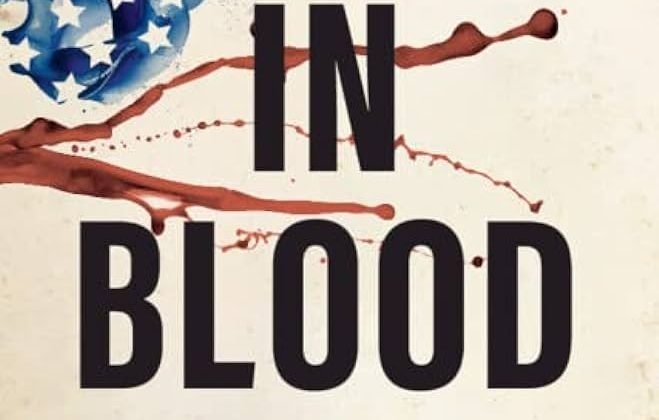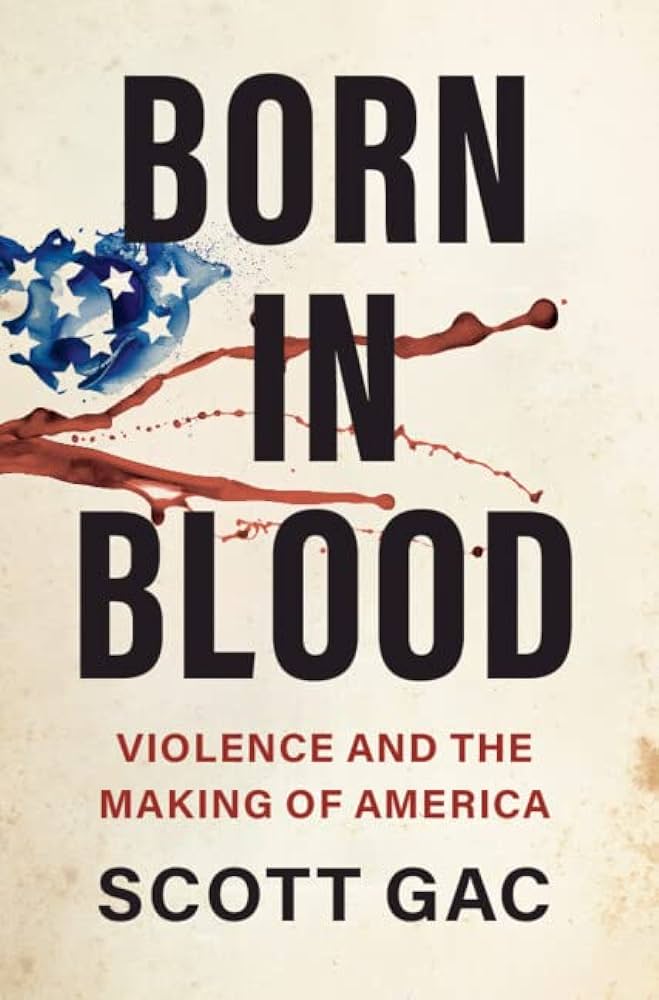

Scott Gac is Professor of History and American Studies at Trinity College. This interview is based on his new book, Born in Blood: Violence and the Making of America (Cambridge University Press, 2024).
JF: What led you to write Born in Blood?
SG: In the last ten years, there has been a lot of excellent work produced on various aspects of violence in the United States. I wrote Born in Blood: Violence and the Making of America to bring together a more unified political and cultural history around slavery, settler colonialism, Whiteness, and militarism. Ultimately, Born in Blood surveys the United States from 1776 to 1900 through the lens of violence.
JF: In 2 sentences, what is the argument of Born in Blood?
SG: Born in Blood argues that multiple forms of state and individual violence form the foundation of liberal government in the United States. Indeed, key concepts like Liberty, Democracy, and Capitalism are part and parcel of this violent American history and, like the nation itself, they were born in blood.
JF: Why do we need to read Born in Blood?
SG: The first step in making sure that the United States doesn’t fall prey to its own deluge of violence is to accept and understand the nation’s violent past. So, please, read this book!
JF: Why and when did you become an American historian?
SG: Back when I was in high school and college, History was my best subject. But when I decided to go to grad school for History, it wasn’t for the best reasons. Once, during a lecture in a large class of about 130 students, my professor walked to the back of the room, snatched a copy of the college’s newspaper from the hands of a student who was reading it, and quipped, “at the very least it should be the New York Times.” Then he continued talking about Eugene V. Debs and the American radical tradition. I was so impressed by this display that I saw the profession in a new light and as a possibility. About ten years later in 2003, I received my doctorate in American History. Now, however, I believe there are better approaches to making such an important decision. When I talk to undergrads who want to go to grad school for History, I engage them in thorough and honest conversations about the challenges that they may face along the way.
JF: What is your next project?
SG: “Married to Slavery” is the title of my next project. It explores how families in the United States navigated differing views on slavery and race in the years before the American Civil War.
JF: Thanks, Scott!